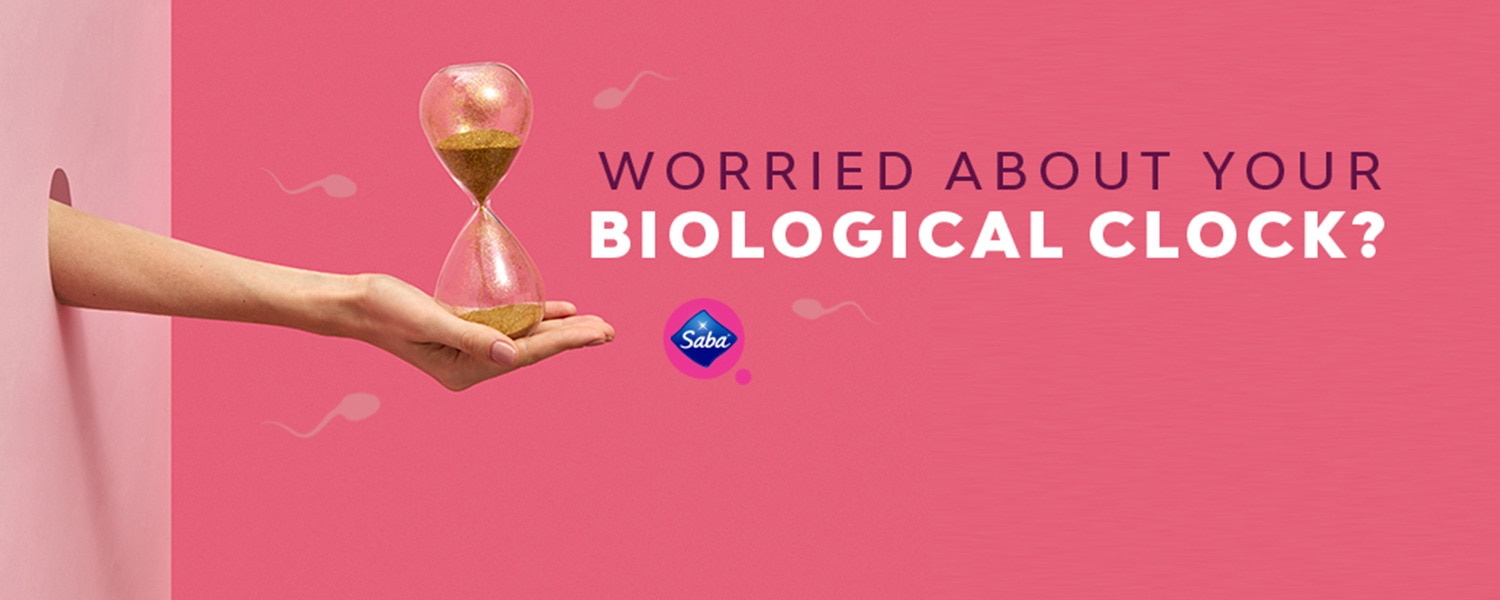Women's Biological Clocks

Saba® makes you feel #CómodaContigo.
Have you ever heard the phrase, “Hurry! Or you’ll miss your flight.”? Well, this phrase also applies to women’s biological clocks. These clocks aren’t actual time-telling devices, but rather refer to the period of time in which women are fertile and, therefore, more likely to become pregnant.
A woman's clock starts ticking when she has her first period - usually at around 12 and 16 years of age - and indicates an ability to become pregnant. The clock stops ticking with the last menstrual period - about four decades later.
However, it is common for women’s fertility to decrease after the age of 20, and even more so after 35. Therefore, the chances of getting pregnant naturally, or through assisted reproductive technologies that use their own eggs, are significantly lower for women in their 30s and 40s.
It is important to note that women have their own unique biological clocks, but there are factors that can affect its rhythm.
Genetic inheritance has a significant influence on the age at which a woman no longer releases eggs, and as a result, stops having menstrual cycles. A woman's health before pregnancy affects both her chances of conceiving and the likelihood that she will have a healthy pregnancy. Smoking, alcoholism, and weight problems are all things that can decrease fertility. Moreover, diseases such as hypertension or diabetes also affect the chances of having a healthy pregnancy. That is why, if your desire is to be a mother one day, it is super important to maintain a healthy lifestyle.
However, forget about pressure from society or family, your body is wise and will know the right time to get pregnant!
On the other hand, if being a parent is not something you want, that is completely fine too! Becoming a mother or not is a very personal decision that should be made with no pressure - especially not from a clock. What’s most important is staying healthy, happy, and enjoying every stage of life.
